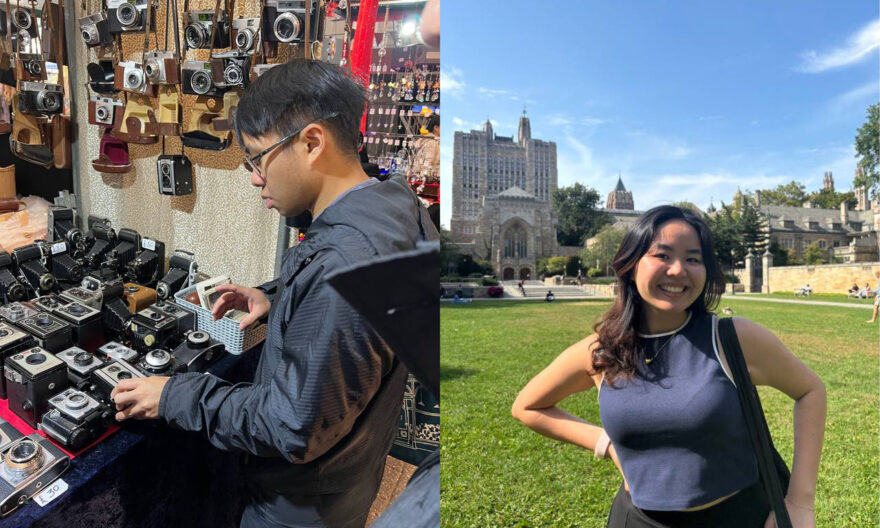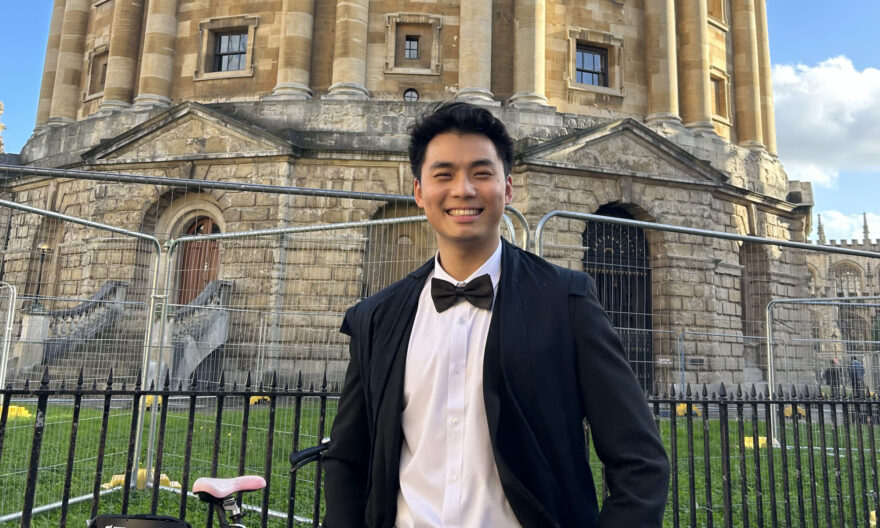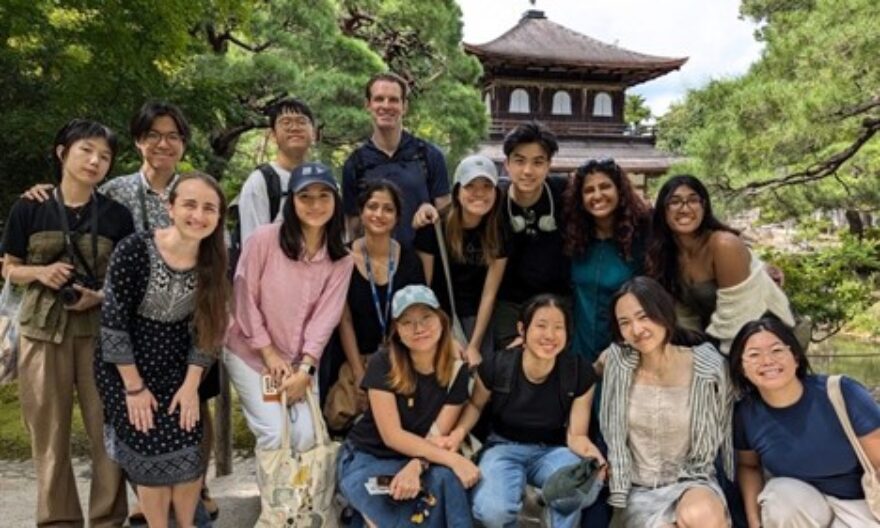Budding Yale-NUS entrepreneurs travel to Korea to explore its start-up ecosystem
Yale-NUS students learn how to ideate, pitch, and adapt their start-up ideas to a new environment
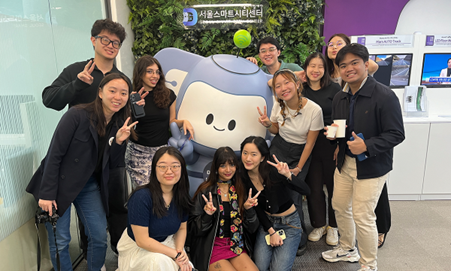 Yale-NUS students visit Seoul Digital Foundation (SDF) as part of the study trip. Image provided by Ashley Yong.
Yale-NUS students visit Seoul Digital Foundation (SDF) as part of the study trip. Image provided by Ashley Yong.
Yale-NUS students have diverse interests, among which include entrepreneurship. To support students’ entrepreneurial interests and help them develop the skills to become future entrepreneurs, Yale-NUS College partnered with Reactor School, a leading start-up school to hold an entrepreneurship bootcamp in Singapore and a study trip to South Korea.
The bootcamp in Singapore aimed to teach students entrepreneurial skills, while the study trip to Korea sought to widen students’ perspectives through learning about Korea’s rapidly expanding start-up ecosystem.
At the bootcamp held earlier in the year, students formed groups and worked together to form a start-up idea from scratch—beginning from the ideation stage to the final pitch.
Two months later, the students brought their start-up ideas to Korea, where they would go on to refine, and adapt their ideas to a new market.
While in Korea, the students were hosted by Reactor School’s partner, Next Challenge, a start-up accelerator. Besides sessions with Next Challenge, the students also had the opportunity to meet with local and international start-up founders, visit government affiliated start-up incubators, and attend an entrepreneurship workshop at Ewha Womans University.
Of the myriad events, many students found the sharing by start-up founders most impactful.
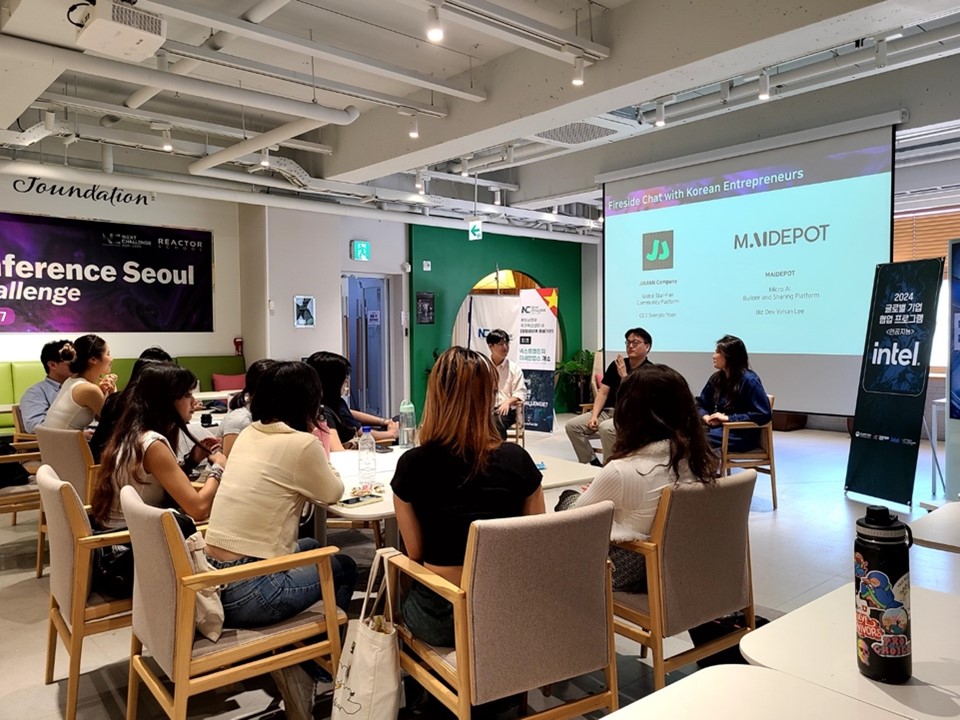 Korean start-up founders share about their start-ups, and answer questions from the students in a fireside chat. Image provided by Kohner Bouchard, Product Manager at Next Challenge.
Korean start-up founders share about their start-ups, and answer questions from the students in a fireside chat. Image provided by Kohner Bouchard, Product Manager at Next Challenge.
The founder of the start-up behind the social hangout platform JJAANN, Seonjoo Yoon, made quite the impression on students, due to her unique life experiences.
“Seonjoo was very inspirational as she shared about the pathway that she took to arrive at where she is now,” said Gwyneth Tan (Class of 2025). “She said it’s important to learn to ‘be okay with failure and take as many risks as possible,’ and I was very inspired by how she seems to really embody that message in her life, like how she left her career to do a master’s in business administration (MBA) in law at Harvard University, then discovered that it isn’t for her and that it’s okay. Everything that we try and do puts us one step closer to figuring out what we like and are passionate about.”
Simran Kaur (Class of 2025) was greatly impacted by the sharing of one of the founders, Sasha Smirnovat. “I resonated with Sasha’s story of how entrepreneurship ‘found her’ rather than her actively seeking it. The traditional start-up narrative is centered on relentless hustling and financial risk-taking, which can seem daunting and only possible for exceptional individuals. It was inspiring to see a humble journey that came out of a simple passion as it made entrepreneurship seem more accessible.”
During their study trip, the students also attended an entrepreneurship workshop at Ewha Womans University, a private women’s university in Seoul, South Korea. Ewha Womans University offers courses on entrepreneurship for its students and has a University Entrepreneurship center.
In the entrepreneurship workshop, Yale-NUS students worked on their start-up ideas and had the opportunity to consult with Ewha students seeking inputs on what adjustments would have to be made to bring their start-ups to Korea. This included discussions around Korea’s law, economy, and culture.
Sevval Begum Bayram (Class of 2025) said, “The Ewha students are really knowledgeable in entrepreneurship and the Korean market, and introduced us to new perspectives with their insights about Korea. They were also genuinely interested in our ideas and wanted to help improve them to perfection.”
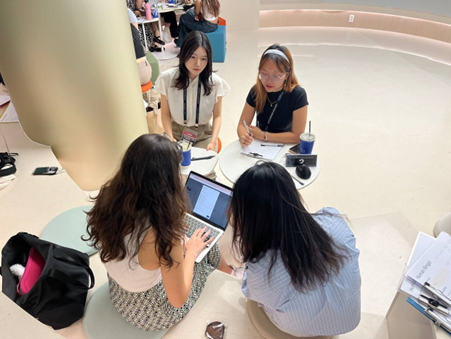 The groups consult with Ewha Womans University students about their start-up ideas. Image provided by Ashley Yong.
The groups consult with Ewha Womans University students about their start-up ideas. Image provided by Ashley Yong.
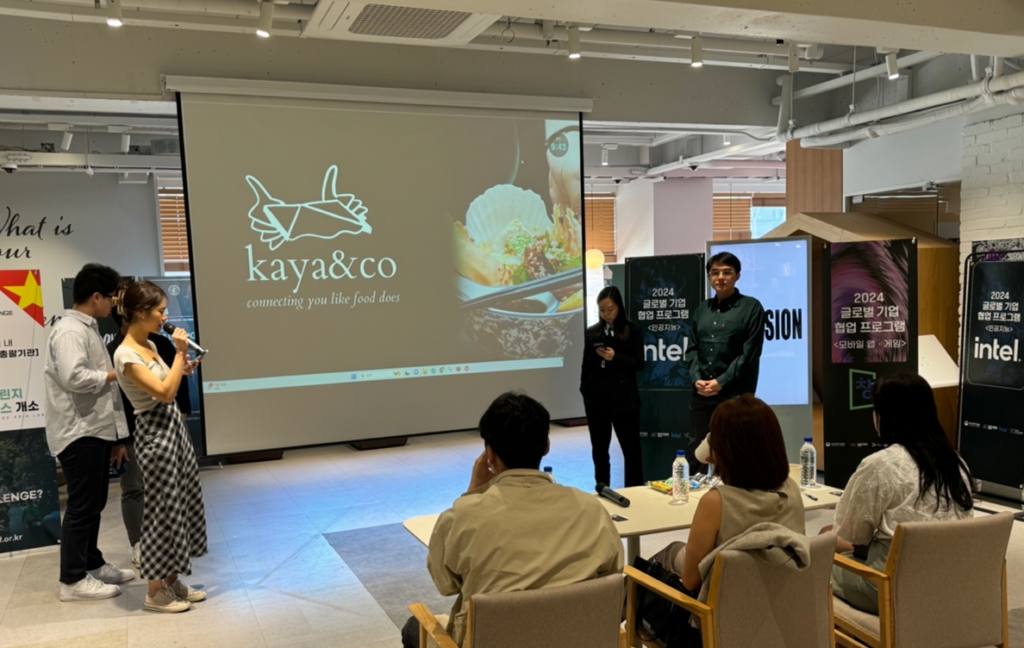 The students pitch their start-up ideas, which had been refined or refocussed during the trip, to a panel of judges. Image provided by Kohner Bouchard, Product Manager at Next Challenge.
The students pitch their start-up ideas, which had been refined or refocussed during the trip, to a panel of judges. Image provided by Kohner Bouchard, Product Manager at Next Challenge.
To the students, one of the most valuable aspects of the programme was the many individuals they met during their experience.
“Throughout the programme, we had a chance to meet so many people from various fields and backgrounds,” said Sevval. “It was inspiring to listen to everyone’s unique entrepreneurship journey, and I realised that talking to people from unfamiliar backgrounds can really give me a new perspective.”
Simran shared, “Entrepreneurship has a much heavier emphasis on community that I initially thought. Over the past few days, many founders shared how important it was to have connections that can not only open up doors for them, but also form a support system that can bring them through their endeavors. It humanised networking for me, as it no longer appears as merely transactional but rather a shared connection of learning and purpose.”
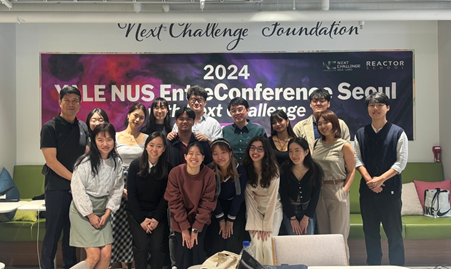 The study trip culminates with a pitching session to a panel of judges. Image provided by Kohner Bouchard, Product Manager at Next Challenge.
The study trip culminates with a pitching session to a panel of judges. Image provided by Kohner Bouchard, Product Manager at Next Challenge.

